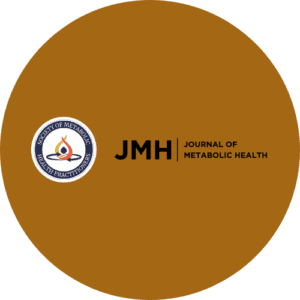 In a striking display of marketing prowess, Eli Lilly recently funded a full-page advertisement in the New York Times, touting its latest pharmaceutical offering as a groundbreaking solution to the obesity epidemic. This move, while ostensibly aimed at addressing a significant public health issue, ultimately serves as a stark reminder of the pervasive myopia within the medical profession. The ad represents not just the promotion of a drug but the perpetuation of a flawed paradigm—one that ignores the crucial roles of hormones, metabolic health, and therapeutic carbohydrate reduction (TCR) in managing obesity.
In a striking display of marketing prowess, Eli Lilly recently funded a full-page advertisement in the New York Times, touting its latest pharmaceutical offering as a groundbreaking solution to the obesity epidemic. This move, while ostensibly aimed at addressing a significant public health issue, ultimately serves as a stark reminder of the pervasive myopia within the medical profession. The ad represents not just the promotion of a drug but the perpetuation of a flawed paradigm—one that ignores the crucial roles of hormones, metabolic health, and therapeutic carbohydrate reduction (TCR) in managing obesity.
At first glance, Eli Lilly’s advertisement appears to be a beacon of hope for millions struggling with obesity. It promises a simple solution: take this drug, and the weight will come off, and better yet, “it not just weight loss it’s health”. This narrative is alluring, particularly in a society that seeks quick fixes for complex problems. However, the reality is far more nuanced. Obesity is not merely a consequence of overeating or a lack of willpower; it is a multifaceted condition deeply intertwined with metabolic dysfunction, hormonal imbalances & often psychological issues like binge-eating and food addiction.
Pharmaceutical companies, driven by profit motives, have a vested interest in promoting medications as the primary solution. This approach conveniently sidesteps the need to address more challenging, systemic issues that require lifestyle changes and a reevaluation of dietary guidelines. The advertisement is not just selling a drug—it is selling the illusion that obesity can be effectively managed without addressing its root causes.
The medical profession’s fixation on pharmaceutical interventions has led to a glaring oversight: the role of hormones in obesity. Hormones such as insulin, leptin, and ghrelin play critical roles in regulating hunger, satiety, and fat storage. Insulin resistance, a hallmark of metabolic syndrome, is a major driver of obesity and related chronic diseases. Yet, the mainstream medical approach of “count your calories” fails to prioritize metabolic health, focusing instead on a near useles budgeting approach to obesity, this is called the EBM (energy balance model).
Addressing hormonal imbalances requires a comprehensive approach that includes dietary modifications, physical activity, and stress management. Therapeutic carbohydrate reduction (TCR), in particular, has shown promise in improving insulin sensitivity and facilitating weight loss. Unlike the simplistic calorie-restriction model, TCR acknowledges the metabolic impact of different macronutrients and emphasizes the reduction of refined carbohydrates and sugars that contribute to insulin resistance.
The promotion of pharmaceutical solutions like Eli Lilly’s new drug perpetuates the misguided notion that obesity is a problem to be solved with a pill/injection. This approach not only undermines efforts to promote sustainable lifestyle changes but also diverts attention from the root causes of metabolic dysfunction. It is a disservice to patients who are led to believe that medication is the only viable path to health.
Moreover, the emphasis on medication reflects a broader issue within the medical community: the reluctance to challenge established dietary guidelines and consider alternative approaches like TCR. Despite mounting evidence supporting the benefits of low-carbohydrate diets for metabolic health, these approaches remain marginalized. This is partly due to the influence of powerful food and pharmaceutical lobbies that have a stake in maintaining the status quo. See the corporate sponsored ADA, AHA and APA for more details.
The time has come for a paradigm shift in how we approach obesity and metabolic health. Instead of relying on pharmaceutical interventions as the first line of defense, the medical profession must embrace a more holistic approach that prioritizes hormonal balance and metabolic health. This includes recognizing the value of TCR and other dietary strategies that address the underlying causes of obesity.
Patients deserve more than temporary fixes; they deserve sustainable solutions that promote long-term health. By continuing to ignore the role of hormones and metabolic health, the medical profession is failing to provide comprehensive care. It is imperative that we move beyond the narrow focus on medication and embrace a more nuanced understanding of obesity—one that acknowledges the complex interplay of hormones, diet, and lifestyle.
Eli Lilly’s full-page advertisement in the New York Times is emblematic of a broader issue within the medical community: the tendency to prioritize pharmaceutical solutions at the expense of addressing root causes. While medications have a role to play, they are not the panacea for obesity. To truly combat this epidemic, we must shift our focus towards metabolic health, hormonal balance, and therapeutic carbohydrate reduction. Only then can we hope to provide effective, sustainable solutions for those struggling with obesity.
For more articles, explore our library of articles on our Blog or on the Toward Health App.





